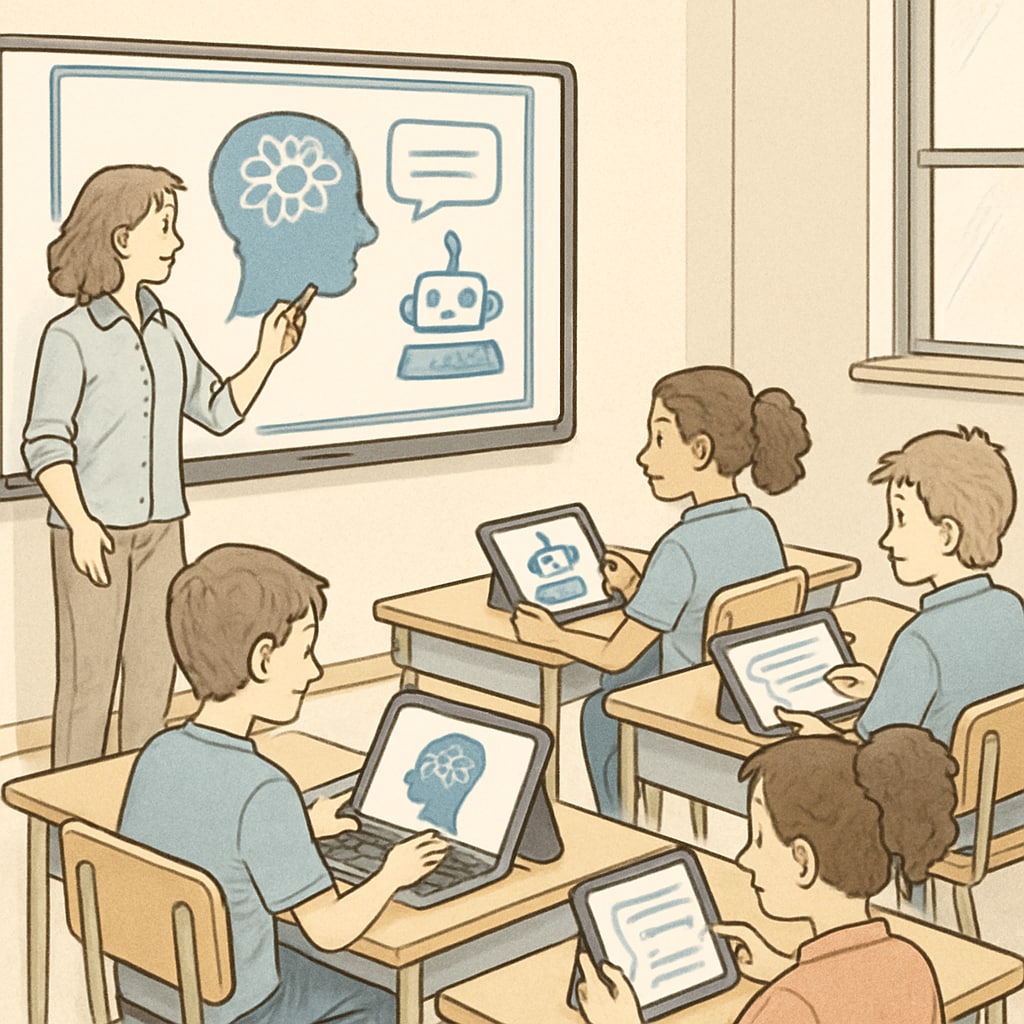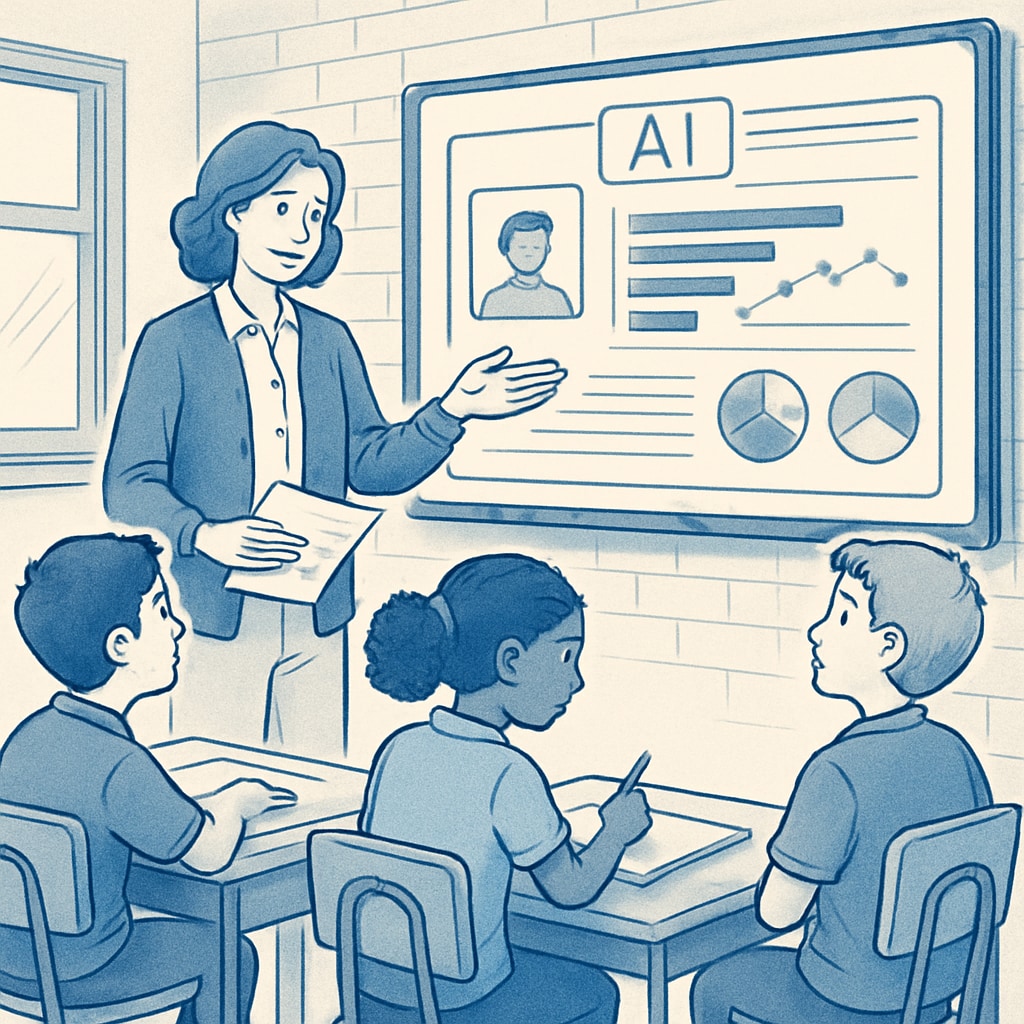The integration of AI into education is reshaping traditional teaching methods, raising questions about its impact on teacher value and compensation. As AI takes a more prominent role in automating administrative tasks and personalizing learning experiences, educators are grappling with how their roles will evolve in this tech-driven landscape. This article delves into the challenges and opportunities presented by AI, focusing on how it redefines teacher value and prompts a reassessment of compensation structures.
How AI is Transforming Education
AI technologies, such as adaptive learning platforms and virtual teaching assistants, are now commonplace in classrooms worldwide. These tools streamline tasks like grading, attendance tracking, and even delivering personalized content tailored to individual students’ needs. For example, platforms like Khan Academy and Duolingo use AI to track user progress and adapt lesson plans accordingly. The efficiency offered by AI allows teachers to focus on more creative and interpersonal aspects of their work.
However, this transformation also raises concerns. If AI can handle many of the routine tasks traditionally done by educators, what does this mean for the profession’s future? Teachers may find their roles shifting from knowledge transmitters to facilitators and mentors, emphasizing soft skills such as empathy and communication over technical expertise.

The Shifting Perception of Teacher Value
As AI becomes more capable, the perception of a teacher’s value is likely to shift. Traditionally, educators were seen as the primary source of knowledge and guidance. Now, AI systems can provide instant answers, analyze student performance, and suggest tailored learning paths. This could lead to an undervaluation of the human touch that teachers bring to the classroom, such as fostering creativity, critical thinking, and emotional intelligence.
On the other hand, the growing reliance on AI also highlights the unique aspects of teaching that cannot be automated. For instance, resolving conflicts, encouraging teamwork, and inspiring students are tasks that require deep human insight. As such, teachers may need to emphasize their irreplaceable contributions to remain indispensable in AI-enhanced classrooms.
Reassessing Teacher Compensation in the AI Era
With the changing dynamics of the teaching profession, compensation models must also evolve. If AI reduces the need for certain tasks, some may argue for lower teacher salaries. However, this perspective ignores the increasing complexity of the educator’s role in an AI-integrated environment. Teachers are not just instructors; they are mentors, counselors, and facilitators of holistic development.
Educational institutions may need to implement new metrics to evaluate teacher performance, focusing not just on academic outcomes but also on emotional and social development. This could justify higher salaries for educators who excel in areas where AI falls short. Additionally, professional development programs will be crucial to help teachers adapt to AI tools, ensuring they remain relevant and effective in their roles.

Preparing for an AI-Driven Future in Education
To navigate these changes, education systems must proactively address the challenges posed by AI. Policymakers and school administrators should prioritize the following:
- Upskilling Educators: Invest in training programs that equip teachers with the skills to effectively integrate AI into their classrooms.
- Redefining Teacher Roles: Clearly outline how AI will complement, rather than replace, educators’ contributions.
- Fair Compensation Models: Develop salary structures that recognize the evolving responsibilities and expertise of teachers.
- Ethical AI Use: Ensure that AI technologies are implemented in ways that respect student privacy and promote equitable learning opportunities.
By addressing these areas, stakeholders can ensure that teachers remain at the forefront of education, even as AI continues to revolutionize the field.
In conclusion, while AI offers exciting possibilities for improving educational outcomes, it also necessitates a reevaluation of teacher roles and compensation. Educators provide irreplaceable value through their human connection and ability to inspire students—a quality no AI can replicate. As we move forward, balancing technological advancement with the preservation of these human elements will be key to a successful integration of AI in education.
Readability guidance: Short paragraphs and lists have been used to improve readability. Transitions like “however,” “therefore,” and “for example” ensure smooth content flow. Passive voice and long sentences have been minimized for clarity.


